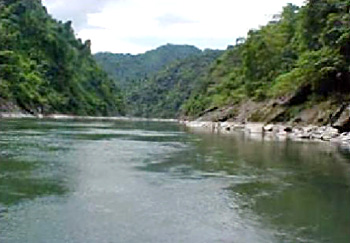 Indian culture smells of Earth and has its origin from the same: the folk culture. Nature stands at the core basis of the existence and `being` of Indian "Bhumi-putras". Indian civilization has been much accelerated by the Arcadian philosophy and its tributaries which concerns itself much with Nature. Folk Songs on Nature are among some of the most widely prevalent kinds of Indian folk music. Nature forms a very big part of the life of the rural people and India being a country with an agrarian economy, this connection is reflected in their various folk songs.
Indian culture smells of Earth and has its origin from the same: the folk culture. Nature stands at the core basis of the existence and `being` of Indian "Bhumi-putras". Indian civilization has been much accelerated by the Arcadian philosophy and its tributaries which concerns itself much with Nature. Folk Songs on Nature are among some of the most widely prevalent kinds of Indian folk music. Nature forms a very big part of the life of the rural people and India being a country with an agrarian economy, this connection is reflected in their various folk songs.
Folk songs having nature as their primal thematic crux are most common and plenty. Dependent on nature for their life and livelihood and spending all their life in close connection with Mother Nature, the rural folks are deeply attached to all the aspects of Nature. Hence, the trees, the seasons, birds, flowers, snow, rain, animals and the entire gamut is found reflected in all their folk songs. The Banbhajans of the Chattisgarh areas of Madhya Pradesh or the Bangits of the Brahmaputra River Valley of Assam are examples of such. These forest-songs are intimately connected with nature, and the feelings generated by Nature.
Songs on Seasons
There are various themes along which the nature songs are based. The most common among all these are the songs on the change of seasons and the cultivation of the crops: mainly Rabi and Kharif. Being primarily an agricultural lot, the seasonal changes signify cyclical changes in the life and work of the rural folk and these changes are often reflected in their songs. From welcoming and celebrating spring, oncoming monsoon, requesting the Rain gods for bountiful resource; to the celebration of fertility and new life -a wide array is being covered by these folk songs. Indus Valley Civilization unfurled the worship of Nature out of fear for natural calamities like famine and flood. However; though it took off as phobia; it finally evolved as religiosity and faith amidst the Indians.
Songs on Rivers
India is a land of rivers and the rivers, too, form a rather prominent theme of the folk songs on nature celebrating the life and love of the river. A number of rural village folk worship river as their chief source of livelihood. A lot of their time is thus spent on the river, a mouthful of happy, sad, mournful as well as romantic songs are composed on the river. When the rivers flood then crops are destroyed and cattle, life and property get washed away. Thus, the creative and destructive power of the river casts its shadow on these folk songs.
Apart from this, birds, flowers, snows, hills and even tigers and grasshoppers are not to be left behind as thematic material for the folk songs on nature. All these are representative of the beauty and power of nature, with which the rural folk lie in close, connect.




















